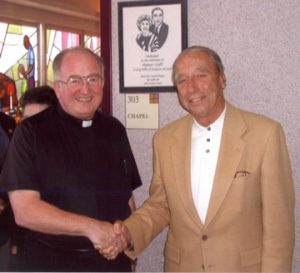Thursday morning at breakfast the Today Show broke into its programming to announce a decision in the case of King v. Burwell. By a 6-3 decision the justices found for the defendant.
I’ve been disturbed at the news coverage on this. Virtually all the reporting makes it sound like a boxing match: Who won and who lost. I’m willing to bet that an embarrassingly small percentage of the population could name the case (King v. Burwell) or the issue that the court decided today.
The implications were clear: had the court found for the plaintiff the Affordable Care Act would likely not have been able to survive. So what were the particulars of the case?
The Affordable Care Act (ACA), also called “Obamacare” was signed into law in 2010 and mandated that nearly everyone purchase health insurance. Many of us work for companies that provide us with adequate health insurance, but many companies don’t If you’re a part time or per diem employee you may not get health care from your company. If you work for a small business they may not afford to pay for health insurance. If you’re under 65 and not employed (for any reason) you have nobody to provide you health insurance.
You’ve always been able to buy a health insurance policy on your own, but for many people that was not an option. Premiums were prohibitively high, and you can be denied for a host of pre-existing conditions. I have sleep apnea and before the ACA I would have been excluded from any private health coverage.
The ACA mandated that health insurance companies not exclude anyone for pre-existing conditions. Health insurance companies (rightly) argued that this doesn’t work for them because under this system nobody would buy health insurance until they needed it (much as you can’t buy fire insurance when your house is already on fire). The mandate was necessary as this provided health insurance companies a larger base of customers. That’s the basis of insurance: most people who buy insurance don’t need it and this pays for the minority who does.
But there was still another problem: a large percentage of our population still couldn’t afford to purchase health insurance. We can’t tell people they have to buy health insurance if they simply can’t afford to. Because of this the ACA provided subsidies for people whose earnings fall below a certain level.
The ACA wanted the states to participate in this and made this deal: if your state wishes, it can set up a health insurance exchange. For those eligible for subsidies, the federal government will pick up all of the cost for the first few years and most of the cost from then on. If a state refused to set up an exchange, the federal government would set one up. I believed that most states would see the value in setting up exchanges. I was wrong. Only 16 states set up exchanges and the rest depended on the federal government.
That’s all fine, but here’s where we get into the current lawsuit. Most of us get our health insurance through our employers and our employer pays part of the premium. For people who get their insurance through these exchanges, paying the full premium would be overly burdensome, and the ACA provides subsidies to help people buy insurance. Buried deep in the legislation is the phrase that subsidies are only available to people who purchase their health insurance on an exchange “established by the State.”
The plaintiffs argued that these subsidies are only valid for health insurance exchanges established by one of the 16 states, and that if you live in one of the states that doesn’t run its own exchange, you are not eligible for subsidies.
Frankly that would have sent the entire ACA into a death spiral. People in those 34 states would lose insurance because they couldn’t afford to purchase it. The loss of premiums would have made it much more difficult for insurance companies in those states to continue to provide coverage and many of them would stop providing insurance in those states at all.
In the majority ruling the Court found for the defendants, arguing that if this phrase meant to apply only to those 16 states, the seeds of its own destruction would have been written into the law. In other words this can’t have been the intent of the authors because they never would have written legislation whose implementation was impossible.
Simply put this was the last, desperate act of a group of people who don’t like President Obama, don’t like anything he supports, and hoped against hope that they could convince the Supreme Court to strike it down. Fortunately it didn’t work.

